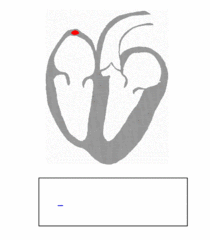 Play the same piece of music to two people, and their hearts can respond very differently. That’s the conclusion of a novel study presented on EHRA Essentials 4 You, a scientific platform of the European Society of Cardiology (ESC).
Play the same piece of music to two people, and their hearts can respond very differently. That’s the conclusion of a novel study presented on EHRA Essentials 4 You, a scientific platform of the European Society of Cardiology (ESC).
“By understanding how an individual’s heart reacts to musical changes, we plan to design tailored music interventions to elicit the desired response” said Professor Elaine Chew of the French National Centre for Scientific Research (CNRS).
“This could be to reduce blood pressure or lower the risk of heart rhythm disorders without the side effects of medication,” added Professor Pier Lambiase of University College London.
“We used precise methods to record the heart’s response to music and found that what is calming for one person can be arousing for another,” said Professor Elaine Chew.
Previous studies investigating physiological responses to music have measured changes in heart rate after listening to different recordings simply categorised as ‘sad’, ‘happy’, ‘calm’, or ‘violent’.
This small study took a more precise approach, featuring several unique aspects.
Three patients with mild heart failure requiring a pacemaker were invited to a live classical piano concert.
Because they all wore a pacemaker, their heart rate could be kept constant during the performance.
The researchers measured the electrical activity of the heart directly from the pacemaker leads before and after 24 points in the score (and performance) where there were stark changes in tempo, volume, or rhythm.
Specifically, they measured the time it takes the heart to recover after a heartbeat.
“Heart rate affects this recovery time, so by keeping that constant we could assess electrical changes in the heart based on emotional response to the music,” said Professor Chew.
“We are interested in the heart’s recovery time (rather than heart rate) because it is linked to the heart’s electrical stability and susceptibility to dangerous heart rhythm disorders,” explained the project’s medical lead Professor Pier Lambiase of University College London.
“In some people, life-threatening heart rhythm disorders can be triggered by stress.
Using music we can study, in a low risk way, how stress (or mild tension induced by music) alters this recovery period.”
Professor Chew noted that while the number of patients in the study is small, the researchers amassed gigabytes of data. The results are currently being confirmed in a total of eight patients.
For more infromation
Every heart dances to a different tune
Link…
European Heart Rhythm Association
Link…
ESC – European Society of Cardiology
Link…
The French National Centre for Scientific Research
Link…
University College London
Link…
MDN
This post is also available in:
 Italian
Italian


